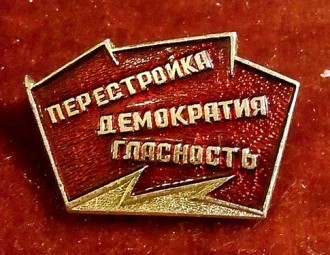The Fourth International Conference of the Political Sphere Institute (Minsk, 15-16 May 2015)

The Institute of Political Studies “Political Sphere” announces the Fourth International Academic Conference in Minsk.
The theme of the conference: “Beyond the Soviet Canon: Political Resistance, Academic and Artistic Autonomy in the Late Soviet Period (1960s-1980s)”.
Dedicated to the 30th anniversary of the beginning of perestroika in the Soviet Union.
Chief organisers:
- Political Sphere Institute (Belarus-Lithuania);
- Bearusan Collegium (Belarus);
- Institute of the Grand Duchy of Lithuania (Lithuania);
- Vytautas Magnus University (Lithuania);
- Polish Institute in Minsk (Poland);
- Embassy of the Republic of Lithuania in Belarus;
- The Lithuanian Institute of History (Lithuania);
- Flying University (Belarus).
Working languages of the conference: Bearusan, Russian, English, Polish.
Working days: 15-16 May 2015.
2015 will mark 30 years of the start of perestroika policy in USSR. The countries which formed the Soviet Union or the Communist bloc are until today identified as “post-Soviet” or “post-communist”. The communist legacy remains the main factor which shapes the transition trajectories of countries in the region, and it becomes particularly important in explaining the gap between them and the West or dependency on the East. Hence “breaking with the past” or “dealing with the Communist past” became one of the main discussion problems of the two recent decades. But are we indeed so dependent on our past?
Moreover, should we understand the communist system as a totality, fully regulated and ideologically controlled? Settling scores with the past can be complete only if we manage to understand the complexity and multifaceted nature of the processes which took place within the society under the outward camouflage of steady socialism building.
At the conference we would like to scrutinize those aspects of civil and intellectual life, which existed beyond the strictly set socialist canon of thought and action. This includes not only dissident and non-conformist movements, but also the demands of the academic and artistic intelligentsia, attempts of transcending the regulations, emphasizing national problems beyond the allowed “ethnography”. Thus understood, the USSR collapse seems to be not a geopolitical disaster, but rather a surfacing of autonomist and decentralization tendencies, and their realization in the favourable environment of economic and political crisis.
Complication of the picture of the Soviet past produces questions on the genealogy of the post-Communist societies. Do we stem from the economic and political regulations, do we maintain the elite continuity, and do we remember the traditions of protection of free thinking?
The conference will gather around 40 academics from Belarus and East-Central Europe.
Main problems for discussion:
- Dissident movement, informal organisations.
- Academic autonomy, free thinking in academia, nationalisation of history.
- Economic activity outside the planned economy.
- Literature and criticism of the Soviet system, historical romanticism as the way of overcoming the socialist realism canon.
- Artistic avant-garde beyond regulations.
- Youth subcultures, style as a protest.
Technical details
To apply for the conference, please submit:
- CV in any of the working languages;
- abstract of your paper 2000-3000 characters long in any of the working languages;
- please indicate whether you need visa support.
Application materials should be sent to [email protected]. Deadline for applications is 1 March 2015.
Organisers will assist the participants with obtaining a Bearusan visa.
The papers presented at the conference will be published in a special issue of the “Political Sphere” journal.
-
03.01
-
07.10
-
22.09
-
17.08
-
12.08
-
30.09










































